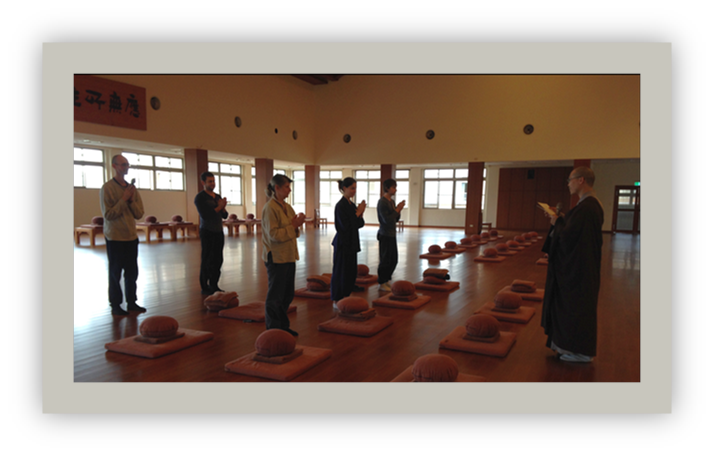Global Buddhist Community
Learning and benefiting from Chan Buddhism
Q1:What motivated you to learn Chan and Buddhism in the first place?
Sasha: I started taking interest in Buddhism in my youth already, when I began practicing martial arts. At that time during my practice I found my mind and psyche in states that could not be appropriate for an advanced Wushu practitioner. My interest led me to understand that the state of calmness, clarity and concentration is the subject of Chan practice. Later my motivation became somewhat broader as I started thinking about such intrinsic values of the European culture as love. The question presented itself: how does it happen that my love to other people and their love to me can cause us so much suffering? When a certain notion of wisdom and compassion started emerging at that place, my understanding of practice expanded to seeing the Teaching as multifaceted and comprehensive.

Rinya: I became interested in Buddhism as part of the Chinese culture. Having met Sasha I understood that it was not only about reading books and thinking, but practice in the first place. At some moment, thinking about what was really valuable for me in life, I found out that it was a state of calmness, of a quiet and steady mind. Or, to be more honest, – that what induces that state. Сhan practice brings up exactly this type of mind. Besides, in my opinion to have a conscious life a person should take pains to clarify and form a personal view of the world, with the corresponding principles and values, which could be relied upon in a day-to-day life. Now the Teaching helps me moving towards a conscious life.
Q2:What changes do Chan and Buddhism bring to your own life?
Sasha: I am sure that without accepting the practice to become a part of my life I would be a completely different person. I believe, had I not encountered the Teaching in due time, my relations with myself and the world would be much harder and more destructive than the ones I have being a practitioner.
Rinya: A person like me, who was brought up in a world with practically no links to its roots and traditions, with an ordinary Western education background, finds oneself initially in a pseudoscientific and pseudo-Christian world. This world has nothing more important than satisfaction of your own desires, the world of individuality, personality, the egocentric world. This is the world of insulation and therefore loneliness. Acquaintance with Buddhism introduced completely new guiding points to my life: something that could and should define my attitude towards my life developments, other people, and my actions. I am talking about basic notions, such as karma, interconnected emergence, about vows taken by a person aspiring to become a Buddhist. As I get to know more about the Buddhist tradition, I am trying to apply these principles in my daily life. This is like a lighthouse guiding a ship across the waves. Without this light, however feeble would it seem, my life would not have even a slightest certainty.
